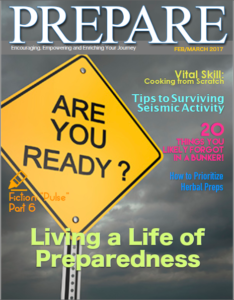The reality is, there is an Imminent Threat of a Global Pandemic…
The world is interconnected like never before thanks to globalization but this also means that a pandemic could have catastrophic consequences. Unfortunately many people overlook or ignore these warning signs until its too late – and they may be closer than we think! Here are some of the indicators pointing towards an impending health crisis on a massive scale.
Alarming Changes in Animal Populations
The world is facing unprecedented changes in wildlife behavior and population dynamics due to human encroachment and environmental degradation. This disruption goes beyond an ecological crisis – it poses a direct threat to human health as well. The increased interaction between humans and animals accelerates the chances of zoonotic diseases jumping species. Observing unusual patterns of illness or death among animals should serve as more than just a sign; its an urgent call for action against pathogens brewing at the crossroads of different species.
Mysterious Illness Clusters
 When mysterious illnesses suddenly emerge in clusters with unfamiliar symptoms it serves as a warning sign for what could be an impending nightmare scenario. These enigmas are whispers from potential pathogens that may soon spread across populations if ignored or dismissed as isolated incidents without taking necessary measures immediately. This delay could result in allowing the disease to gain ground and escalate into another pandemic situation. It is imperative not to take these occurrences lightly by acting swiftly before its too late!
When mysterious illnesses suddenly emerge in clusters with unfamiliar symptoms it serves as a warning sign for what could be an impending nightmare scenario. These enigmas are whispers from potential pathogens that may soon spread across populations if ignored or dismissed as isolated incidents without taking necessary measures immediately. This delay could result in allowing the disease to gain ground and escalate into another pandemic situation. It is imperative not to take these occurrences lightly by acting swiftly before its too late!
The Unprecedented Spread of Diseases Across Borders
In todays interconnected world diseases can spread across continents in mere hours by hitching rides with unsuspecting travelers. When an infectious disease starts to make its presence felt across different regions at a speed and pattern that goes against historical trends it becomes clear that we may be witnessing the onset of a pandemic right before our eyes.
The Rise of Drug-Resistant Pathogens – A Concern
The threat of antimicrobial resistance is real and looming large over our healthcare system. As pathogens evolve into drug resistant strains they become potential killers that were once easily treatable diseases. This silent alarm signals the possibility for a global catastrophe if we don’t act now against this growing problem. Don’t underestimate its impact – it goes beyond just being an issue affecting individual health; rather, it has far reaching implications on society as well.
Global Health Monitoring Systems – Alarming Signs
The digital age has brought about significant advancements in health monitoring systems that scan vast amounts of data for patterns indicating an outbreak. These sentinels serve as our first line of defense against potential epidemics yet their warnings are often met with hesitation or neglect. Ignoring these alerts is akin to disregarding the rumbles preceding an impending storm – both situations carry equally severe consequences if left unchecked.
The possibility of a global pandemic is no longer an abstract risk – it’s an imminent threat that looms large over our interconnected world. The early signs serve as a clarion call for immediate action from international bodies, governments and individuals alike. Complacency at this critical juncture could prove catastrophic; heeding warnings now may be the difference between life or death later on down the line.
As we stand here today facing such challenges head-on – let us choose wisely: either take proactive measures towards preventing another outbreak or remain complacent at great peril to ourselves and others around us. It all comes down to how much value we place upon human lives versus personal convenience in times like these when everything hangs in balance.
Get your Free Subscription to PREPARE Magazine
So, What Can Families do to Be Ready for a Global Pandemic?




